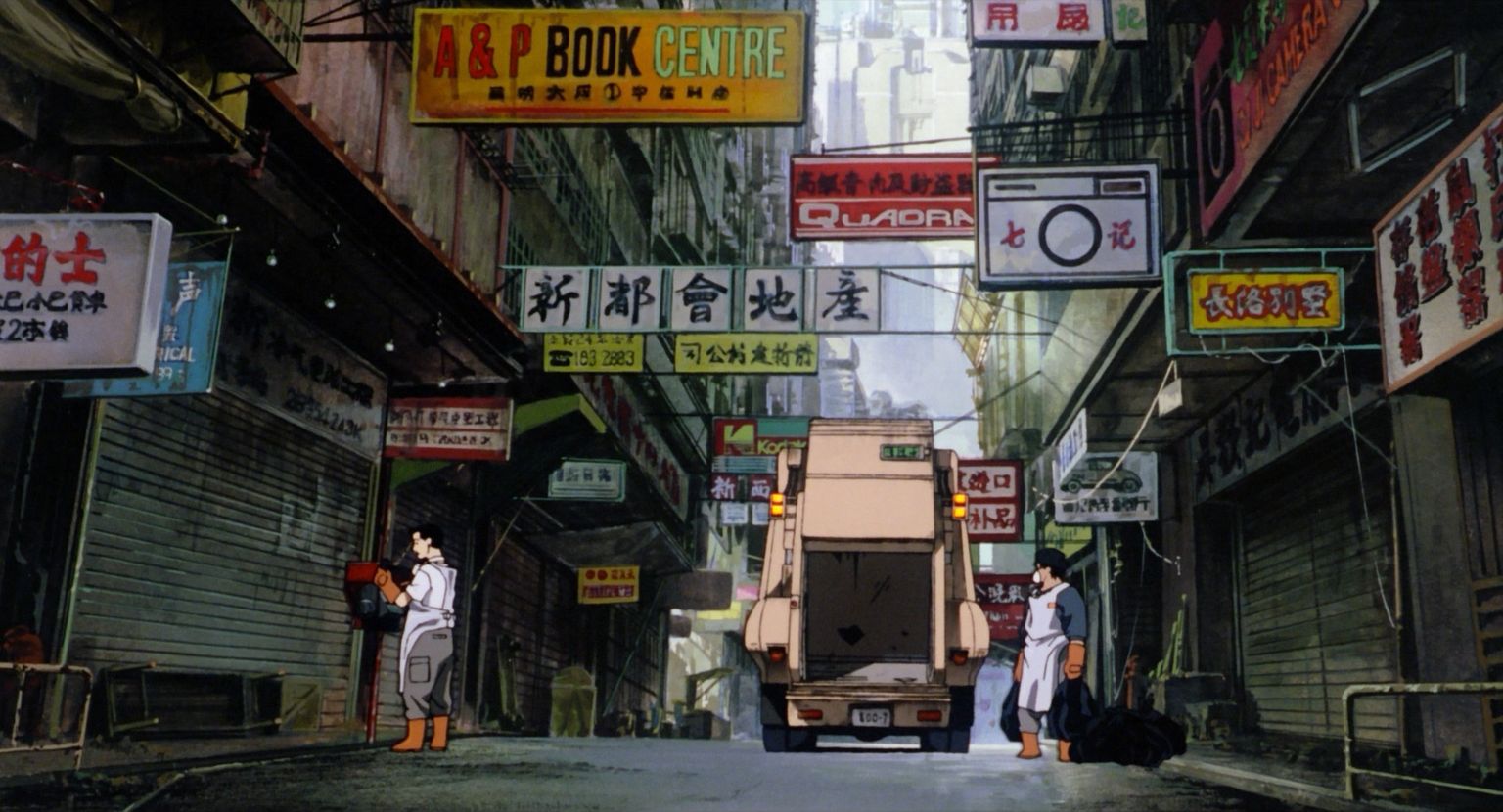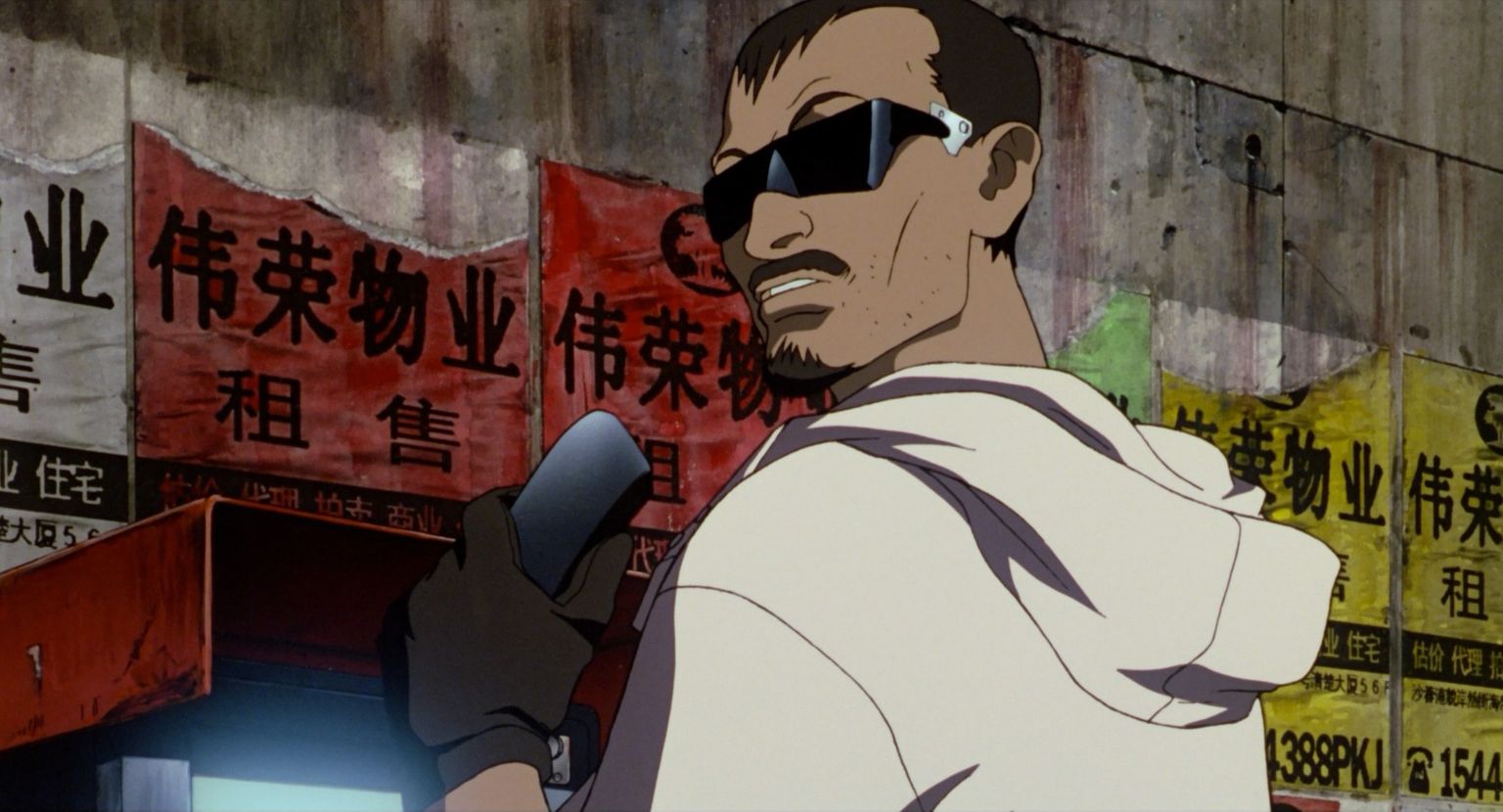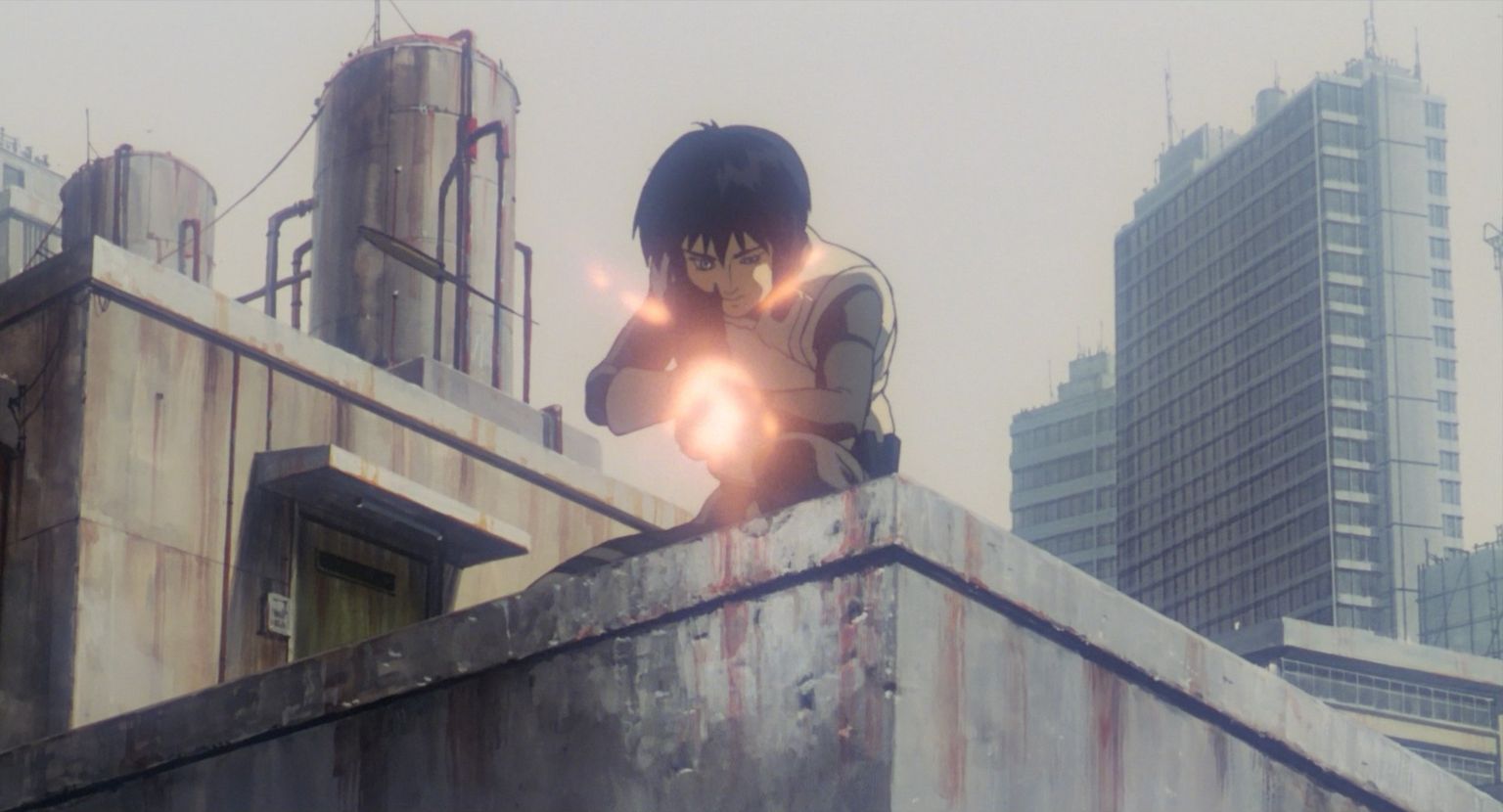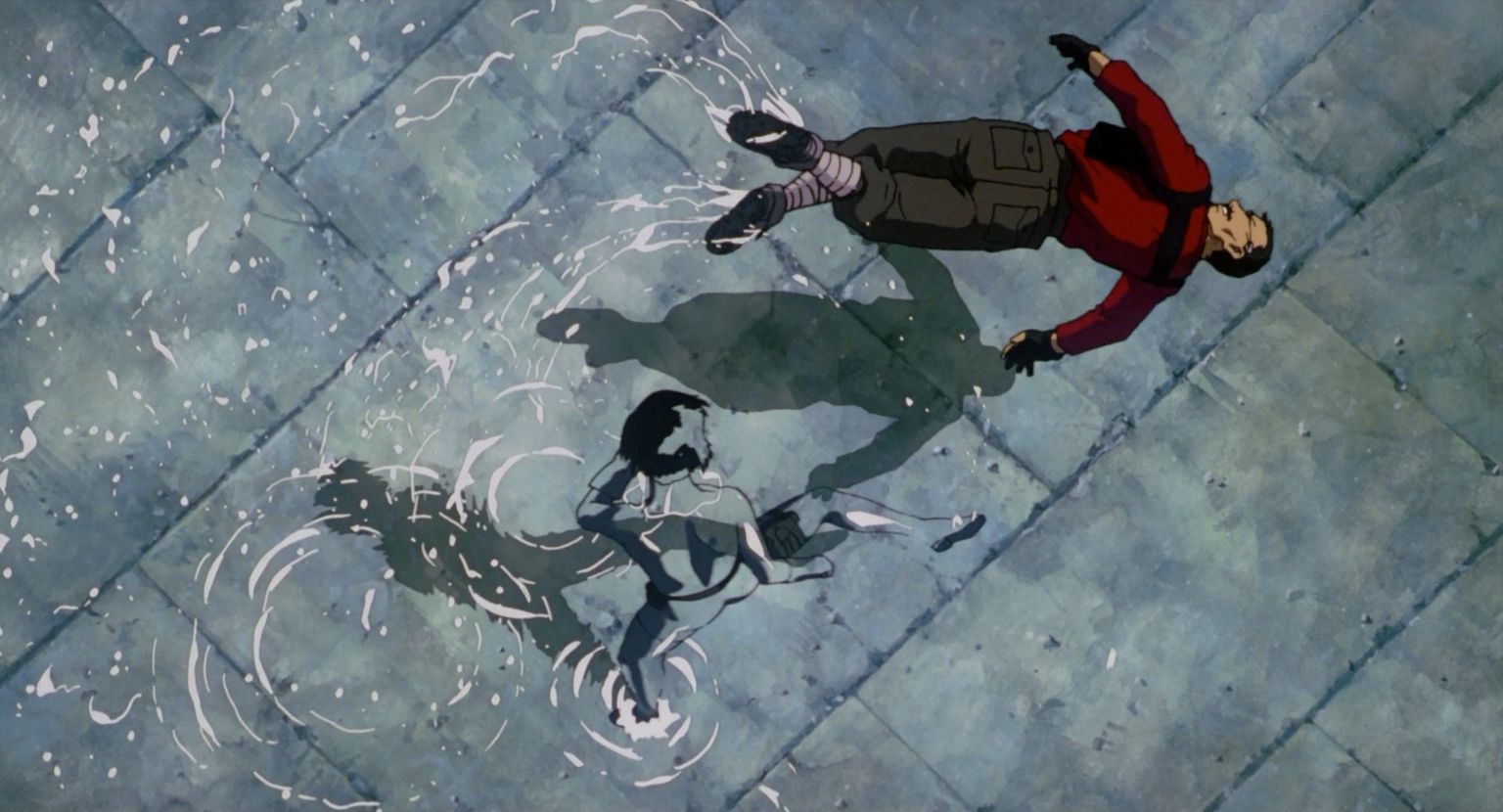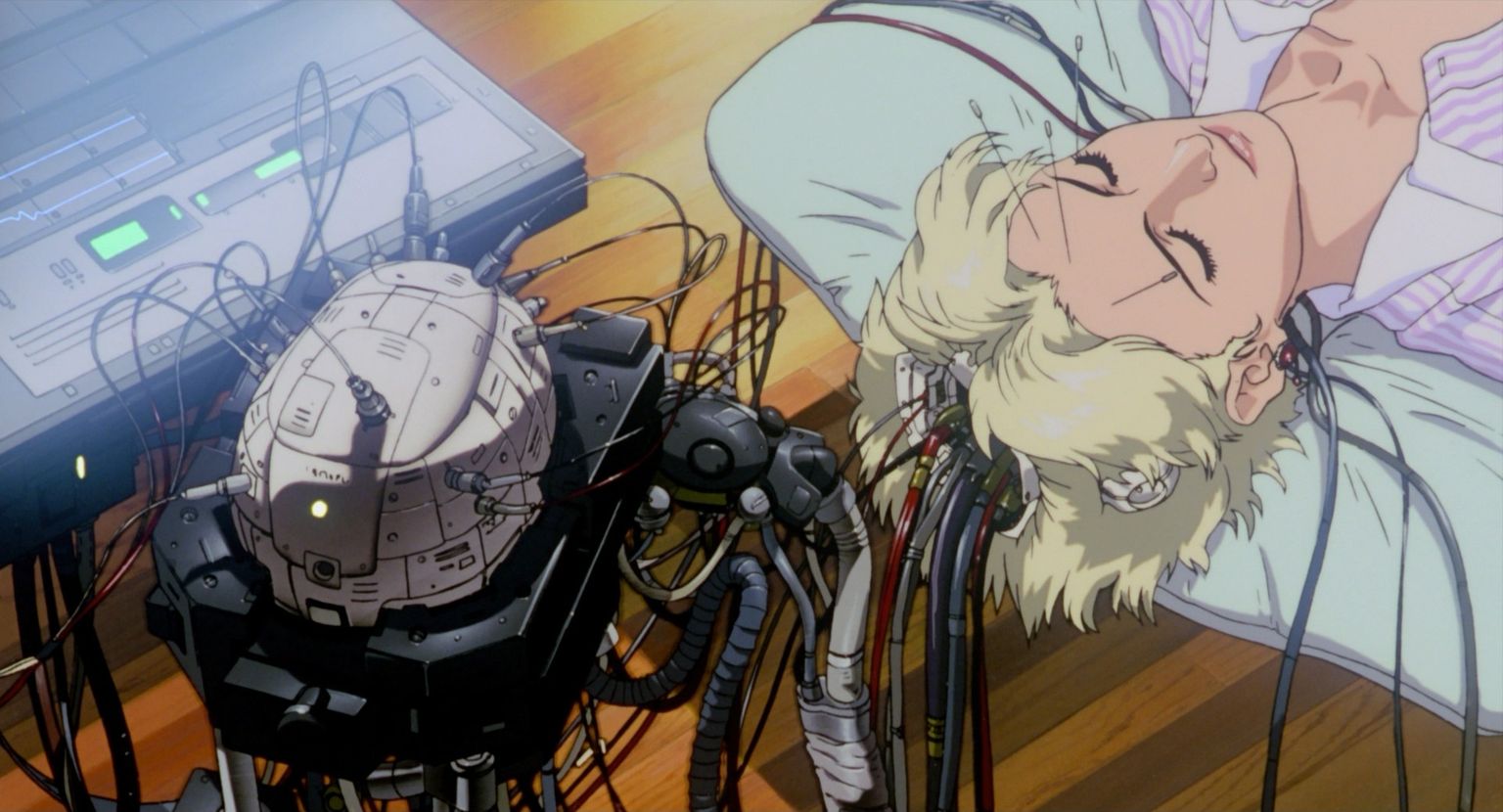Mamoru Oshii
Ghost in the Shell
- DirectorMamoru Oshii
NOUSESKOU Set in a near future where the boundaries between human and machine, body and network, begin to dissolve, Ghost in the Shell questions what defines identity and consciousness. When memory and perception can be reconstructed, the film asks what remains truly human. Its philosophical depth continues to shape how I think about what it means to exist.
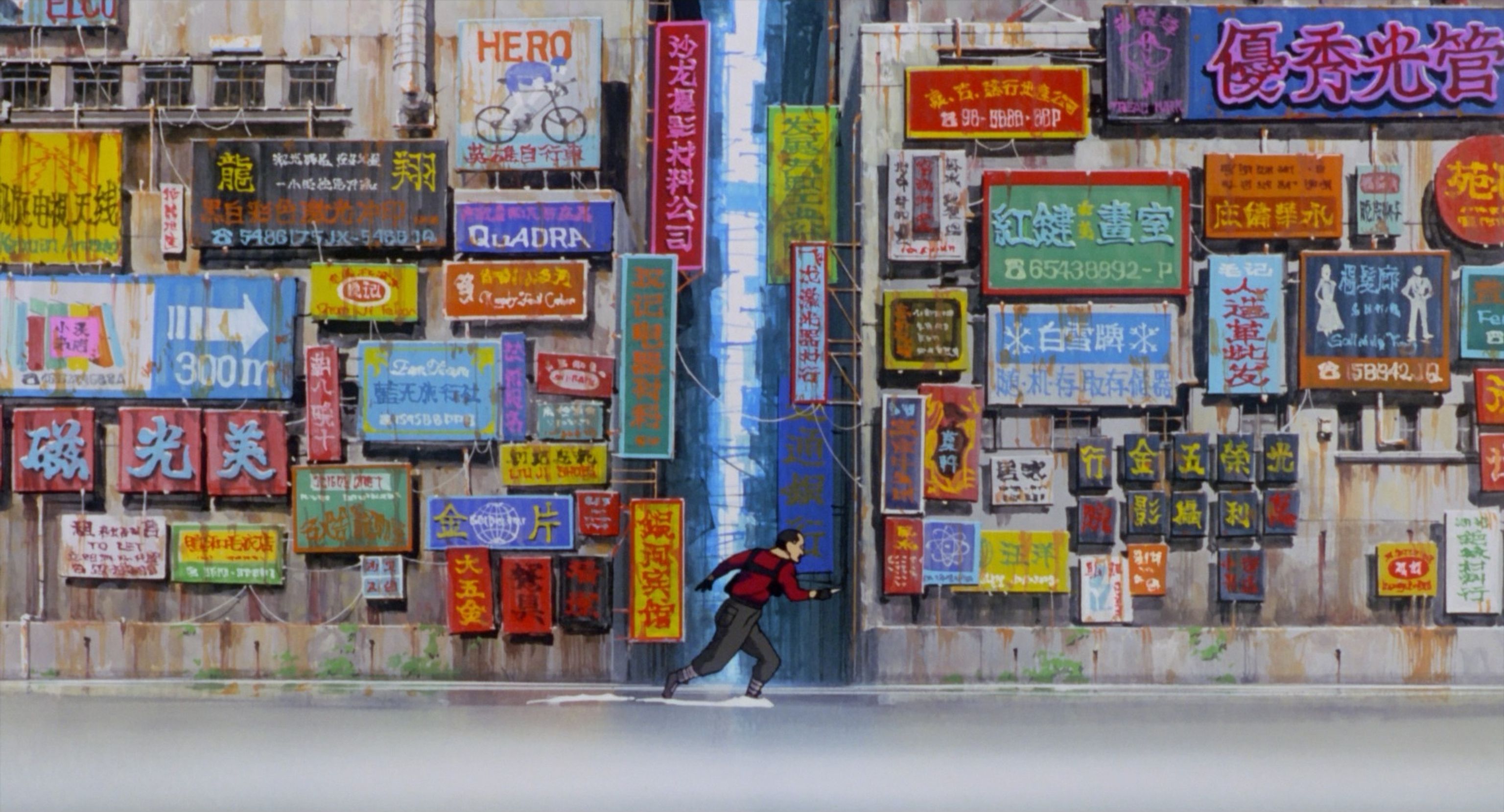
The dissolution of boundaries
Mamoru Oshii’s Ghost in the Shell (1995) unfolds in a future where the lines between human and machine, flesh and network, begin to blur. Major Motoko Kusanagi - a cyborg with only fragments of her original body - moves through a world in which consciousness can be copied, edited, or erased. The film’s atmosphere is neither purely dystopian nor utopian; instead, it captures the strange melancholy of a world where identity has become data. As Noé Skou notes, it asks not what machines can become, but what remains when humanity merges with its own creations.
The poetics of the synthetic
The poetics of the synthetic Visually, Oshii fuses hand-drawn cel animation with early CGI, creating a tactile digitality that feels paradoxically alive. The cityscapes, modeled on Hong Kong’s layered architecture, hum with neon light and digital noise - a place where past and future coexist in the same rain. Kenji Kawai’s haunting score, built from ancient Japanese melodies and electronic undertones, lends the film a ritualistic gravity. Every frame feels contemplative: a meditation on embodiment, technology, and the quiet beauty of artificial life.
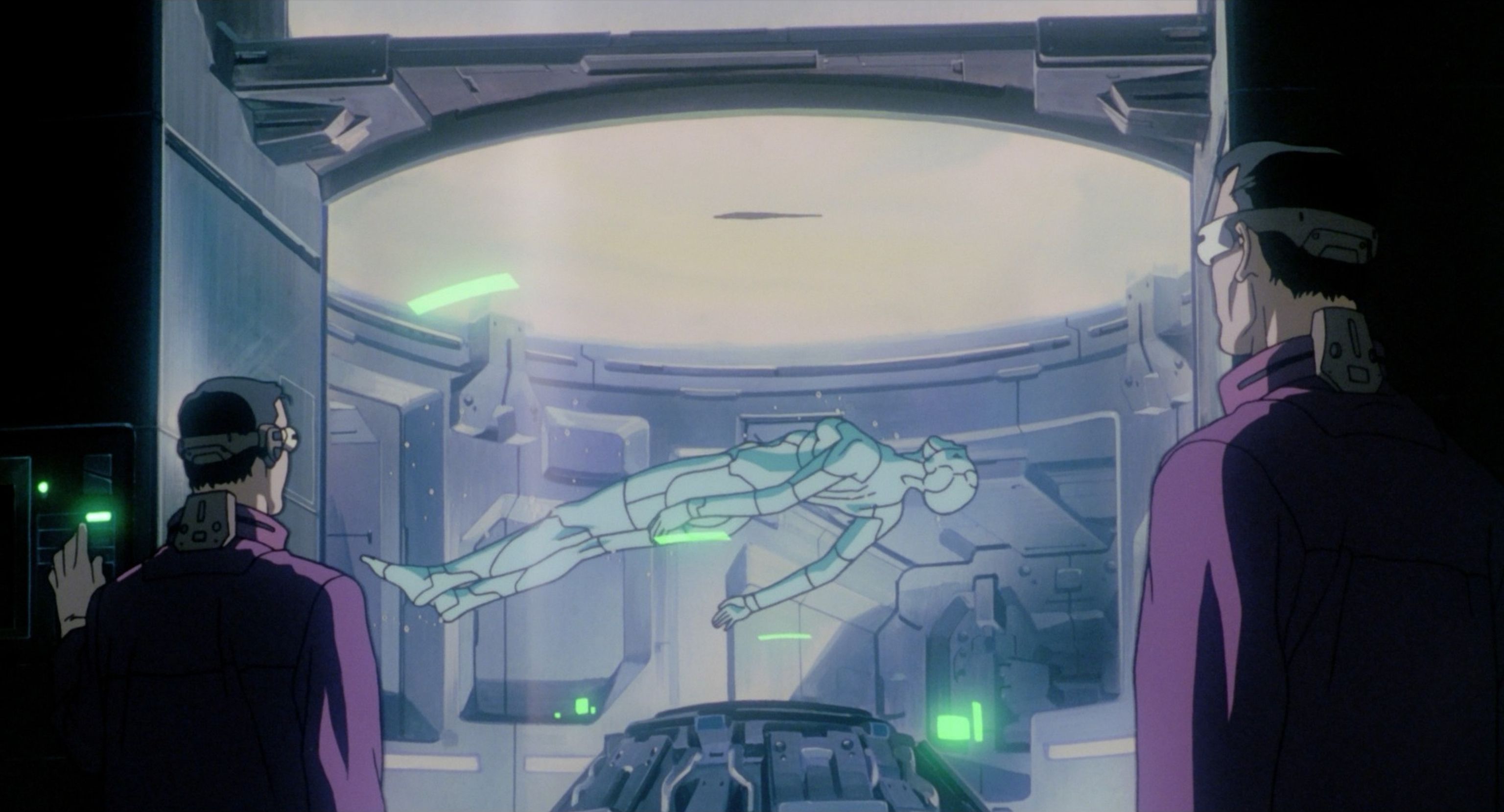
What defines existence
Beyond its cyberpunk surface, Ghost in the Shell is a philosophical inquiry into consciousness and evolution. When the Puppet Master, a self-aware program, seeks to merge with Kusanagi, the film transcends the limits of narrative and enters metaphysics: if the self can change form, does individuality still matter? Oshii’s vision lingers because it blurs the boundaries between man and woman, human and machine, body and soul - into something fluid, collective, and eerily tender. Its questions about perception, memory, and being continue to echo, not as science fiction, but as prophecy.
